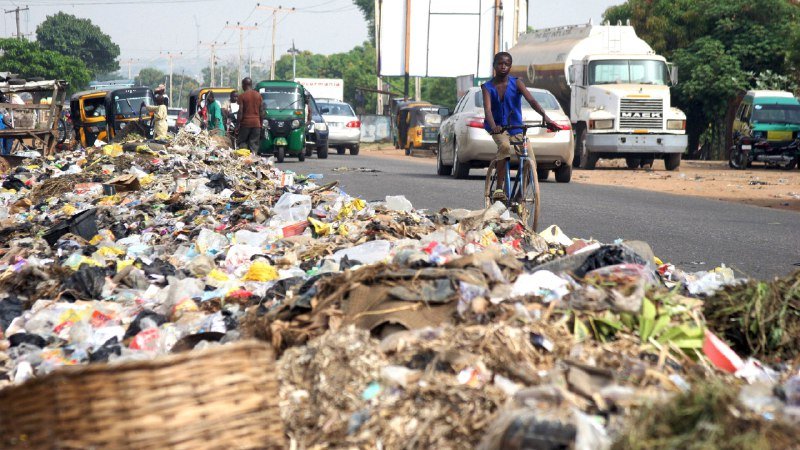Performance indicators from a study by Clean-up Nigeria (CUN) has shown that the number of Nigerians living in an unclean environment has increased from 68 million in 2019 to 170 million in 2020.
The study also rated Abuja as the cleanest city in Nigeria, while Akwa Ibom State emerged as the cleanest state in the country in the study.
The results were the outcome of a 15 member national technical study group on the state of the Nigeria environment report 2020 with focus on the cleanliness index ratings of states and cities/towns in Nigeria conducted by CUN with support from global project partners from Canada, USA, Germany, France and Australia.
Shocking: Church Member Stabs Pastor, 2 Others During Bible Study
This is contained in a statement issued by the National Co-ordinator/Secretary, National Technical Study, Group Prince Ene Baba-Owoh.
CUN said the study was scored on five performance indicators via physical verification 20 percent and the deployment of GEO-Eye-1 satellite that has the highest resolution imagery system in the world which is able to collect images with a ground resolution of 0.41 meters (16 inches) in panchromatic and multi-spectral from the orbit every quarter year-round and gives accurate reliable data.
The study further said it applied five performance indicators which include “streets/road cleanliness (30 percent), vegetation/drain control (20 percent), waste management service (30 percent) public opinion poll+ social media (10 percent), knowledge, attitude and practice (KAP) of hygiene and sanitation of the people (10 percent), totalling 100 percent.
“The 2020 study ran from December 2019 to November 2020 with quarterly evaluation.
Health Study: Tall Men More Likely To Develop Prostate Cancer
Ebonyi State came a distant second, scoring 44 percent to Akwa Ibom’s 80 percent. Lagos, Bauchi, the Federal Capital Territory (FCT), Cross River, Rivers, Plateau, Niger and Ekiti States were placed third to 10th respectively in the descending order. While Kogi was the lowest-ranked state in the study.
“In the cleanest city category, Abuja and (not the whole FCT,) scored 68 percent to come first, followed closed by Uyo which scored 63 percent.
“Ikeja, the capital of Lagos State, placed third with 44% while Maiduguri, the capital city of Borno State, came last in the category,” the statement noted.
The study observed a significant drop in the level of waste management in Nigeria, especially in the areas of equipment most of which have been grounded and unserviceable.
The most disturbing of the study’s observations is that Nigeria still remains the number one country in the world in the practice of open defecation.
Seven Habits Unhealthy For The Brain
It says that “the practice of open defecation in all the 36 states of the Federation and FCT has not reduced.”
“Performance indicators from the studies also show that the number of Nigerians living in the unclean environment has increased from 68 million in 2019 to 170 million in 2020.”
“It also reveals that only three states in the country, namely Lagos, Oyo and Abuja operate sanitary landfills in waste management while the rest still operate open dumping,” the statement added.
In terms of waste management privatization which is part of the millennium set goals with 2020 as deadline, the study said that many governments are still far from achieving the goal as most are directly involved in the management of waste rather than privatizing it which would have improved service delivery.
Why I’m Afraid Of Sending My Children Abroad To Study And Settle Down There
The study, therefore, recommends that the government should hands-off direct management of waste but should engage the private sector to ensure service delivery and job creators.
The study also observes that the informal sector operators of waste recycling and reuse enterprises recorded lower patronage and 37 percent in 2020 as against 43 percent in 2019.
Post Disclaimer
The opinions, beliefs and viewpoints expressed by the author and forum participants on this website do not necessarily reflect the opinions, beliefs and viewpoints of Anaedo Online or official policies of the Anaedo Online.

